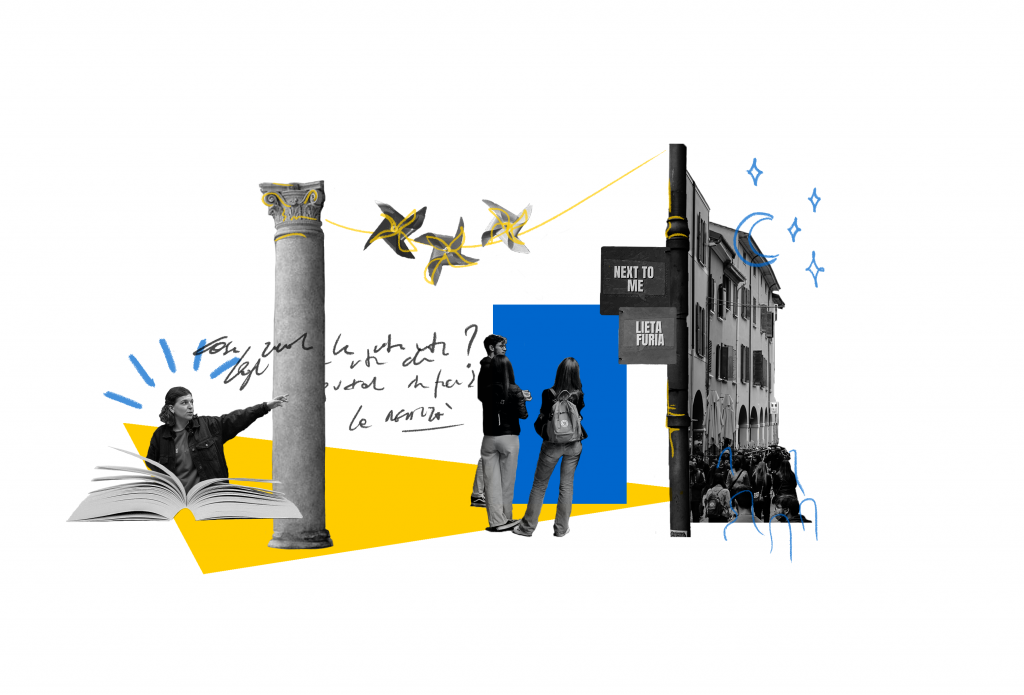What makes life life?
This is the strong provocation that echoed and gave shape to Campus by Night, an event full of meetings, questions, testimonies, life stories, organised by the student association “Student Office” of the Alma Mater Studiorum – University of Bologna, in collaboration with The Crew, held from 7th to 9th October. The Campus organisers, a group of students from various faculties, tried to answer this question by searching for the meaning of what we live every day.
In the world, many situations tell us how life can often be hard: like that of a young man of sixteen years old, the brother of a classmate of mine, who had to ford a river every day to go to school. His life was cut short.
It is not a life even if you live in a country where you cannot express your thoughts freely, or where there are wars and poverty. But sometimes it seems that it is not enough to have freedom, peace and wellbeing; this is proven by the fact that in our country, where basic rights are guaranteed, there is an increase in existential malaise. The statistics, which have increased following the Covid restrictions, are clear and have highlighted how much we all need to relate to others, to be together, because we are not enough for ourselves. It is alarming that more than 20% of young people do not talk to anyone about their state of mind. The adjectives most frequently used are tiredness, uncertainty, worry and apathy. More than 60% have difficulty concentrating, learning new things and socialising, and find it easier to make themselves invisible during lessons. In the face of all this, can we remain indifferent? Where can we put our hope? Campus By Night in Bologna focuses on the need to find meaning in a time of uncertainty and fear. It is given by the value not of what you do but of who you are. In a Campus exhibition, however, I was struck by a different perspective on what makes life worth living: the story of many women in Uganda, victims of violence, sick and marginalised by everyone. When they felt loved for who they were, their lives changed in a shocking way: they did not become rich, they continued to break stones all day long for a few cents, but their outlook changed because they understood they had value. In turn, they were able to love so much that they offered their work to help the earthquake victims in Italy, precisely because they recognised in that suffering their own suffering, which had been embraced by Italian volunteers. From that glance they received, came a great awareness of the value they had as women, they were not ‘the refuse’ of the world and they could do something good, nothing was lost. So what makes life life? And for you, what makes your life life? Certainly not success or being successful. Perhaps there is a need to appreciate the density of every moment, without fear of being oneself, because the real tragedy of young people today is not recognising the value of what they live.

